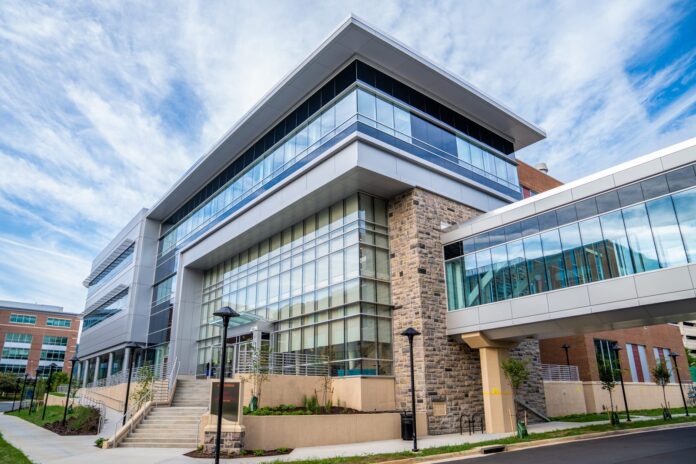By 2034, nearly one-quarter of Americans will have reached retirement age, according to the United States Census Bureau. But as people age, the brain becomes more susceptible to developing disorders, such as essential tremor, Parkinson’s disease, and tumors.
Clinicians and researchers are looking to emerging noninvasive ways to interact with living brain tissue that can be precisely targeted to specific areas. Focused ultrasound, when guided by integrated magnetic resonance imaging (MRI), is a promising new technology that is already used to treat patients with a variety of movement disorder conditions and solid tumors.
Now, with support from a $1.8-million grant from the Edward N. & Della L. Thome Memorial Foundation, Bank of America, N.A., Trustee, the Fralin Biomedical Research Institute at VTC is investing in an MRI-guided focused ultrasound facility.
“The ability to treat major disorders in both human and animal patients that impact deep structures in the body, including the brain, without invasive surgical procedures has been a major goal of medicine for years,” said Michael Friedlander, Virginia Tech’s vice president for health sciences and technology and the Fralin Biomedical Research Institute’s executive director. “MRI-guided focused ultrasound affords this opportunity.”
Researchers from the institute and across Virginia Tech will soon be able to carry out research to advance this technology for improved clinical use.
The new facility, located in the Fralin Biomedical Research Institute on the Virginia Tech Carilion Health Sciences and Technology Campus in Roanoke, will also be available for potential future use by physicians and veterinarians to treat their patients.
Therapeutic focused ultrasound procedures target tissues deep in the body – without incisions or radiation – by using sound waves to heat up particles in a targeted region. The treatments are sought after and many patients are on waiting lists to receive therapy for various conditions, including essential tremor and Parkinson’s associated tremor.
MRI-guided focused ultrasound can deliver precisely targeted energy to alleviate symptoms associated with several disorders more common with aging. In recent years a team of Fralin Biomedical Research Institute scientists, led by biomedical engineer and associate professor Stephen LaConte, worked closely with Insightec and Siemens Healthineers to integrate Siemens’ magnetic resonance imaging with Insightec’s focused ultrasound system.
Friedlander said this research investment will help Virginia Tech and collaborators improve treatments for neurodegenerative disorders, as well as for treating certain solid tumors, to improve human and animal health.
“With the Thome Foundation’s generous support, we will bring together Virginia Tech’s expertise in neuroscience, cancer research, biomedical engineering, and veterinary medicine to catalyze innovation in this important area for modern medicine,” Friedlander said. “There will be increasing opportunities to apply the discoveries and technological innovations in the clinic that will emerge from this interdisciplinary research program.”
In 2016, the U.S. Food and Drug Administration (FDA) approved the first focused ultrasound device to treat essential tremor in patients who had not responded to medication. During this procedure, clinicians use the device to make tiny thermal lesions in an area of the brain that prompts tremors, often instantly and painlessly clearing this symptom for patients.
Researchers continue to study ways to apply MRI-guided focused ultrasound to ablate a variety of solid tumor types. In December 2020, the FDA approved focused ultrasound to relieve pain in patients, including children, with bone tumors called osteoid osteomas.
Researchers at the Children’s National Research & Innovation Campus, where Virginia Tech will open a research program on brain cancer research this fall, are also planning to use MRI-guided focused ultrasound in brain tumor clinical trials to transiently open the blood-brain barrier, allowing cancer-targeting drugs to pass through this protective layer in the brain and deliver potent therapeutics on target.
This is the first Thome Foundation grant to be awarded to Virginia Tech.

